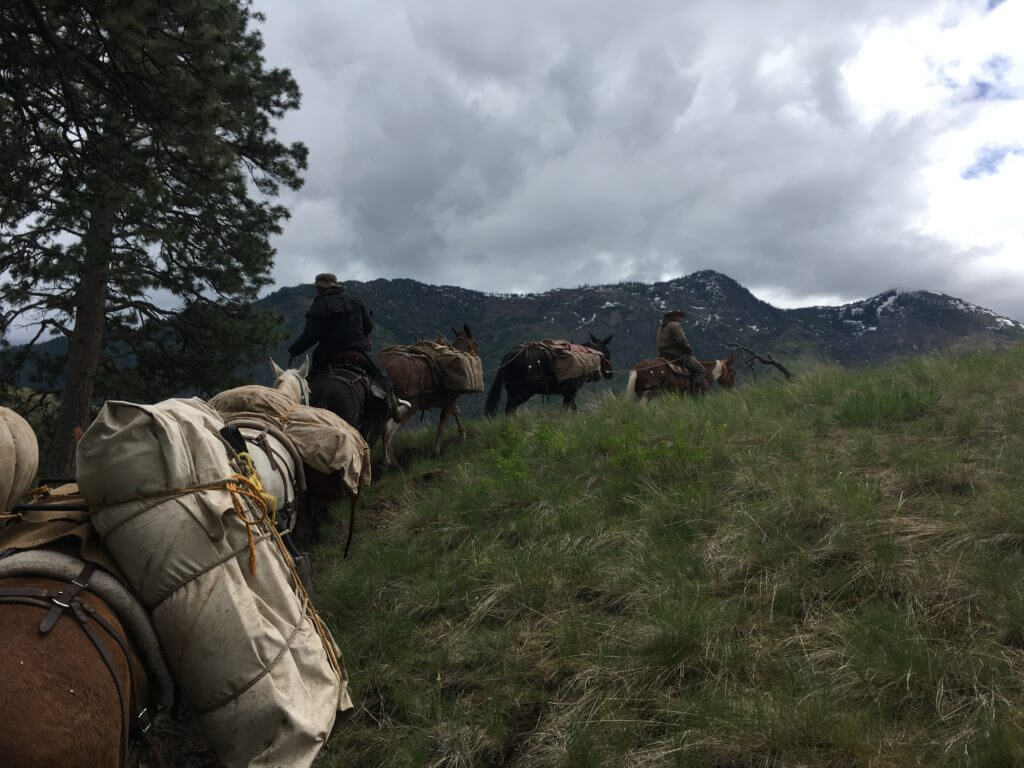
The thrill in many backcountry hunting trips is having the ability to experience some of the most beautiful, wild country on earth. The slow drumming sound of horse hooves striking the trail will take you far away from civilization. If you are booking an outfitted horse hunt the few tips below may help you to pack and prepare for your backcountry experience more efficiently.
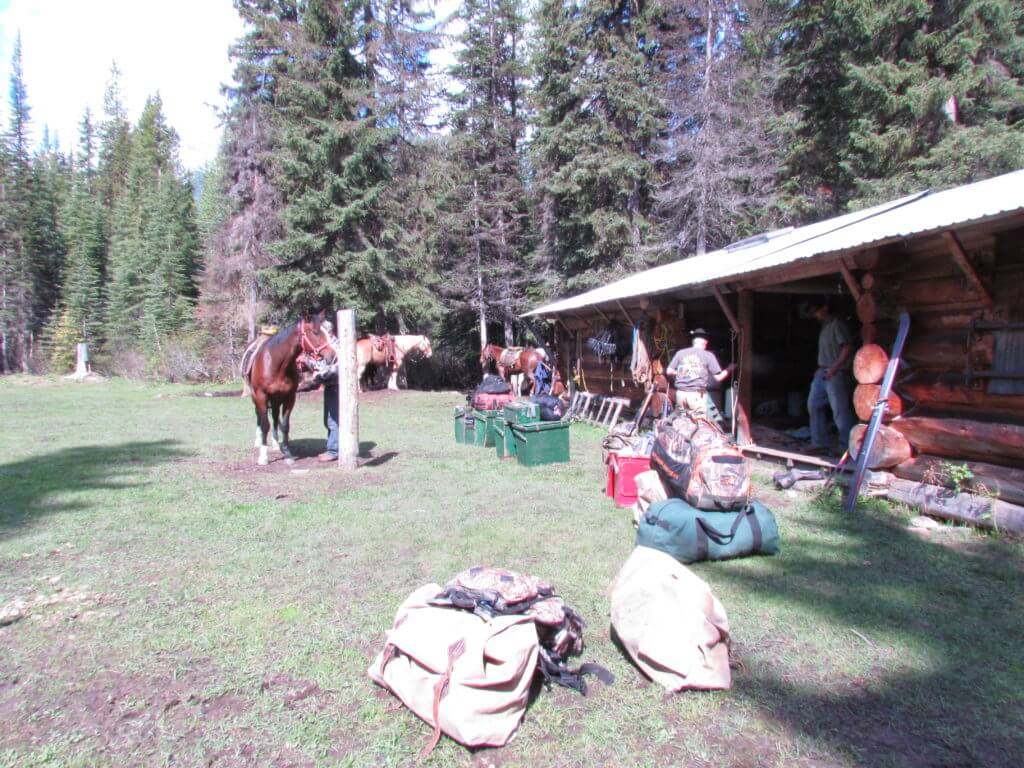
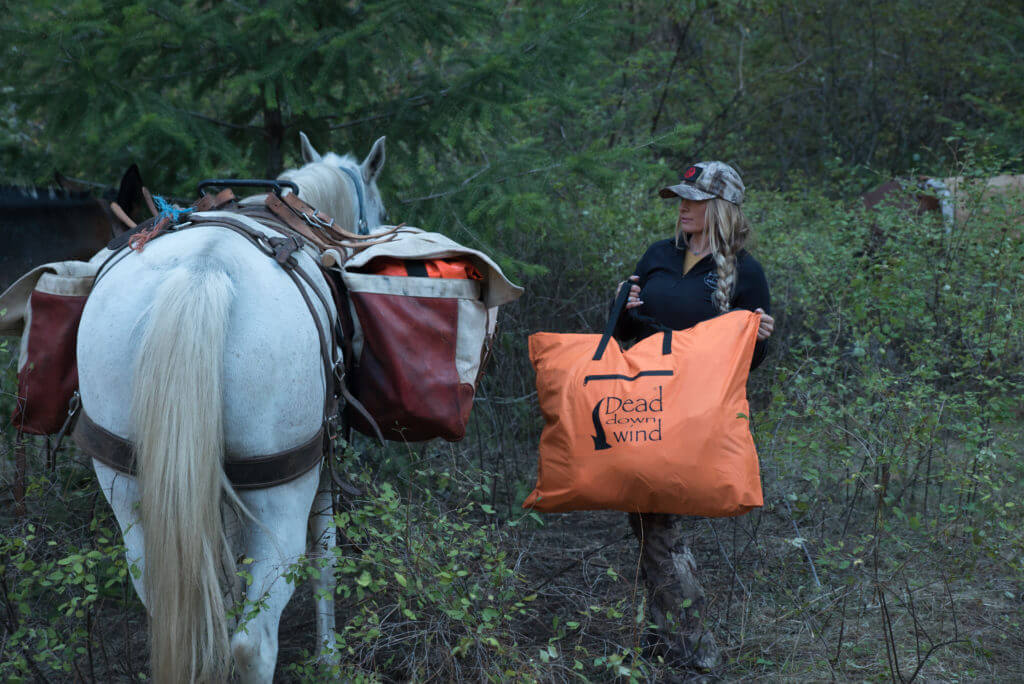
- Soft Duffel Bags-
A single large soft sided duffel bag is ideal for placing into panyards or top packing on a horse. Many outfitters have a 50-60 pound weight restriction per hunter for gear plus the hunters rifle or bow. Ask your outfitter in advance what their gear weight restriction is per hunter and if they would prefer you to pack your gear in to a single duffel bag or if they would prefer you to break up your gear into two smaller duffel bags to be placed on each side of a horse.
Knowing this information in advance allow you to place your gear into your duffel bag in without being overweight. Avoiding overweight bags at the trail head and the mad scramble to decide what you have to leave behind will save time and trust me the outfitter will appreciate you being ready to load up and go instead of spending an hour sorting out gear.

2. Rifle/Bow Scabbard-
If you are flying to a hunt, then you will have to travel with a hard-sided rifle or bow case. How you are going to pack your rifle or bow into the backcountry must be planned in advance. Many outfitters will inform their clients that they have rifle scabbards to place on the horse, however, many modern rifles and optics are large which can cause fit issues at the trailhead. Be proactive and pack along a sturdy soft sided rifle case that has adequate attachment points to tie onto the saddle of your horse.
When it comes to transporting a bow on horseback, there are a few options. The first is to place your bow in a soft sided case similar to what you would with a soft sided rifle case or scabbard. Look for soft cases that have at least a single attachment point on both ends of the case to balance the weight along the side of the horse. Be sure to include a plastic hard-case to store and safely transport your arrows.
You can also place your bow in the soft case and have your outfitter top pack your bow on a pack horse.
The other possible option is to attach your bow directly to your backpack. The possible downfall of this method is that a bow placed into a backpack can possibly hang up in low tree limbs or hit against the back of your saddle.
I would suggest planning for both options and see what works best for you.
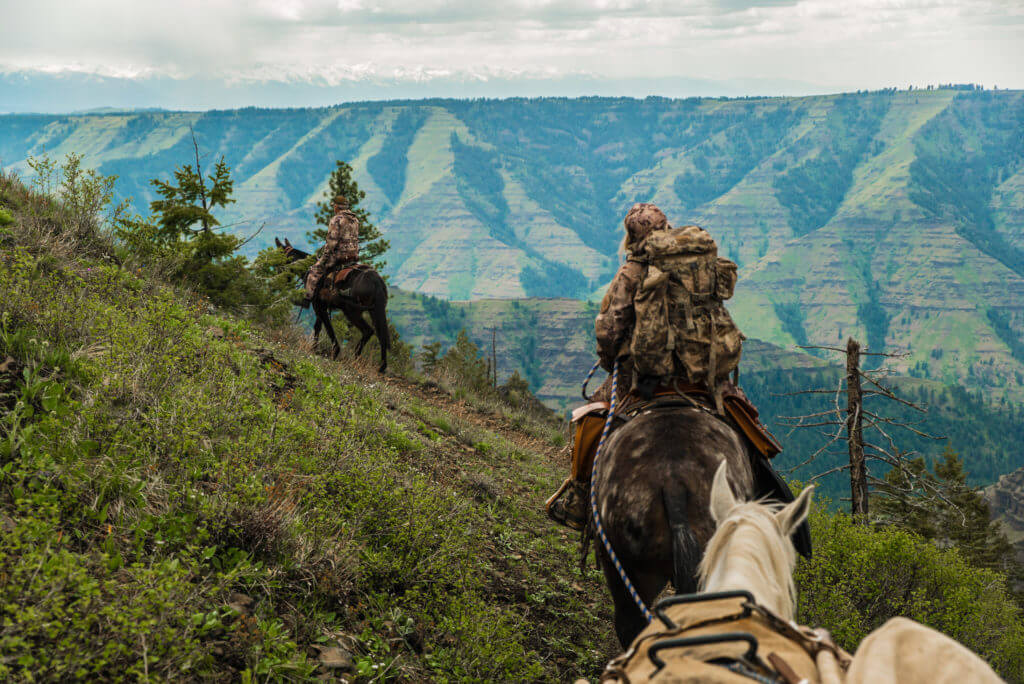
3. Backpack-
It is important to store items that you need to have accessible during the day in a backpack or saddle bag if provided. If you are planning to wear your backpack while on horseback, be sure that you have a conversation with your outfitter in advance. If you are a large person the weight that you can place in a backpack may be severely restricted due to the amount of weight being placed on the horses back.
Make sure that your outfitter knows how much you weigh and ask them how much weight you are allowed to store in your backpack while on horseback. Knowing this information in advance will allow you the opportunity to place those must have items in your backpack while transporting less important items in your soft duffel bag.
If you backpack is overweight with you on horseback, ask if your outfitter has saddle bags that you can place important items into. If that is the case, also ask if there is going to be the option of placing your heavier backpack on a pack horse for day trips. If a packhorse is not an option, you will need to minimize your gear in your backpack to meet any possible weight restrictions.
4. Sleeping System-
When it comes to horse packing, you cannot rely on panyards and/or manties to keep your gear dry in adverse conditions. Sea to Summit makes light weight bags that are designed to keep your gear dry. You can pick these up in various sizes and even with the option of compression straps that will enable you to reduce the size of your contents saving valuable space in your duffel bag and on the horse. Also, consider storing your electronics like a satelight phone in a waterproof bag and wrapping it with a hankerchief to help absorb any moisture that may get on them while exposed to the elements.
When packing with horses not only is weight critical but the volume of space that your gear consumes also becomes critical. Having a giant sleeping bag folded into a garbage bag that may tear and possibly get wet is not a good idea. Do some research on the weather conditions that you are hunting. The Kifaru Slick Bag is available in custom sizing and R-Value ratings with the highest warmth to weight ratio of any bag on the market. Placing your sleeping bag in a dry compression sack will ensure that it stays dry while reducing the amount of volume that it takes up on the horse.
Additionally, be sure to ask your outfitter if they are providing sleeping pads like a Thermarest. If you going to purchase and bring your own sleeping pad, which I would recommend, do some research to ensure that your sleeping pad R-Value is adequate for the temperature and conditions of your hunt.
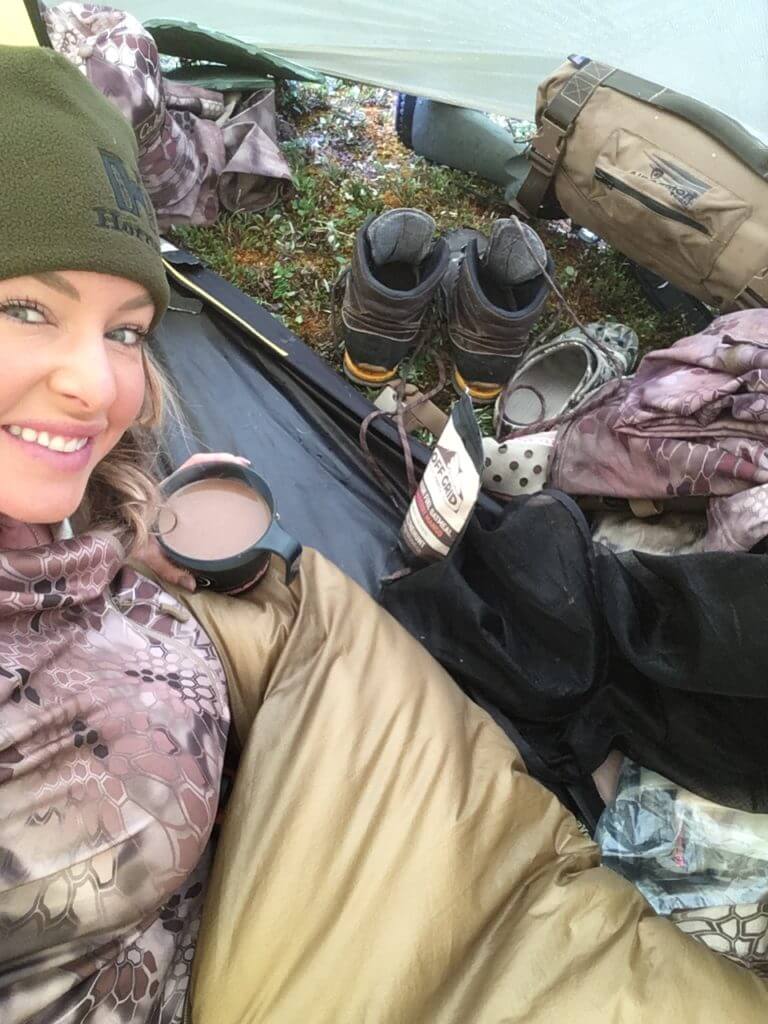
5. Footwear-
Footwear is one of the most important pieces of gear that you will bring on your trip and when it comes to horseback riding, your hunting boots may not be a good riding option because some large hunting boots will not fit into the stirrups on a saddle. Discuss your boot size and style with your outfitter prior to your hunt. Your outfitter may even recommend packing along a good hunting boot like Meindl for hiking and hunting and a pair of rubber boots to navigate a wet trail or mucky conditions. At the end of a long hunt there is nothing more relaxing than taking off your hunting boots and changing your socks. For comfort, consider bringing along a comfortable camp shoe like a pair of lightweight Crocs.
Heading into the backcountry with horses and mules will lead you to trails rarely traveled to marvel at mountain that few have had the opportunity to explore so I encourage you all to get out and go on a backcountry horse hunt.